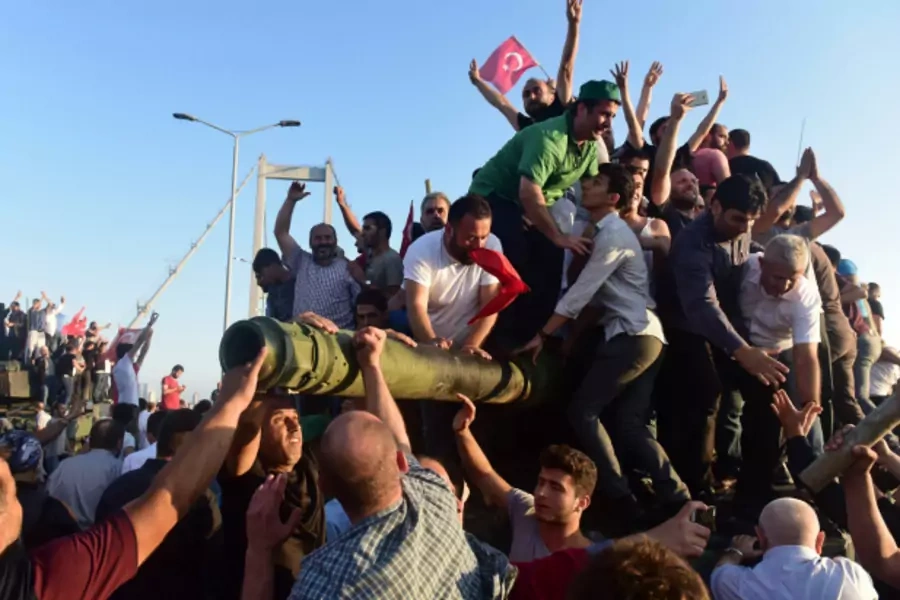Where the Turkish Military Fails, Egypt’s Succeeds

This article was originally published here on ForeignAffairs.com on Tuesday, July 19, 2016.
In a half-decade of extraordinary moments in the Middle East, images of citizens swarming tanks and other military vehicles have been among the most arresting. Within the emerging iconography of the era are photos from early July 2013 that capture overjoyed Egyptians celebrating that the military had emerged from its barracks to depose the country’s elected president, Mohammed Morsi, ending the Muslim Brotherhood’s year-long experiment in governance. The intervention reaffirmed the military’s prestige, influence, and authority in the Egyptian political system. Last Friday night, similar scenes played out in the streets of Istanbul and Ankara. Instead of joy, however, Turks were outraged that members of the military sought to depose President Recep Tayyip Erdogan, a politician who has been winning elections as mayor of Istanbul, prime minister of Turkey, and head of state since 1994. The attempted coup failed, a purge is underway, and the Turkish armed forces—the second largest military in NATO—is in chaos. How was it that the Egyptian officers managed to do what that one faction in the Turkish military could not, especially given Turkey’s extensive history of coups? The answer lies in the interventions themselves and the underlying worldview that served as the basis of the officers’ apparent power.
More on:
As other analysts have already pointed out, a variety of technical reasons explain the failure of last Friday’s coup. The plotters couldn’t arrest Erdogan, they were unable to establish control over communications, airports remained operational, and government ministers remained at large. In Egypt, Abdel Fattah al-Sisi—then the Minister of Defense and now the country’s president—managed to handle all these tasks relatively efficiently.
Continue reading here...
More on:
 Online Store
Online Store